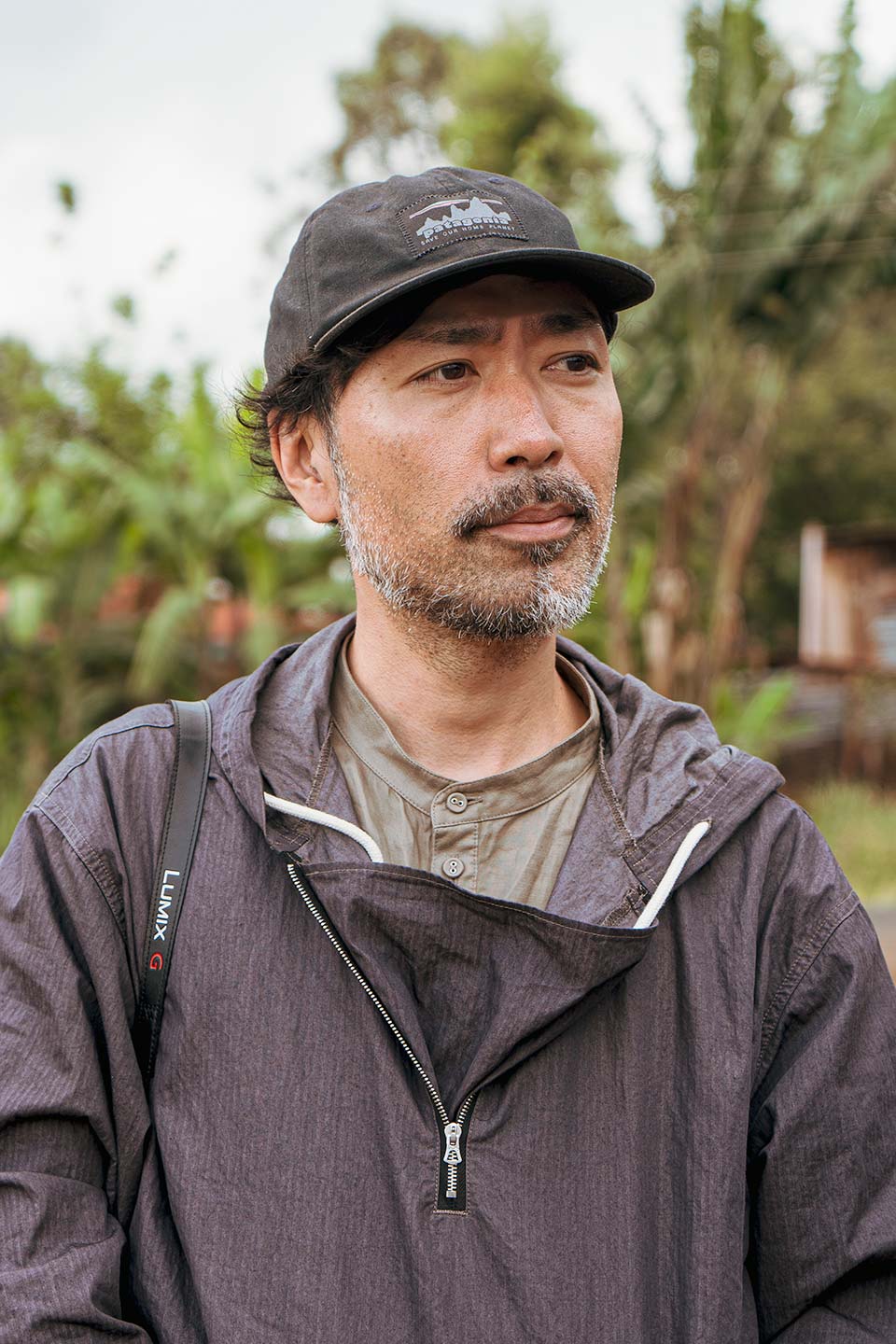
Standing alongside Craftspeople Defying Tide of Times
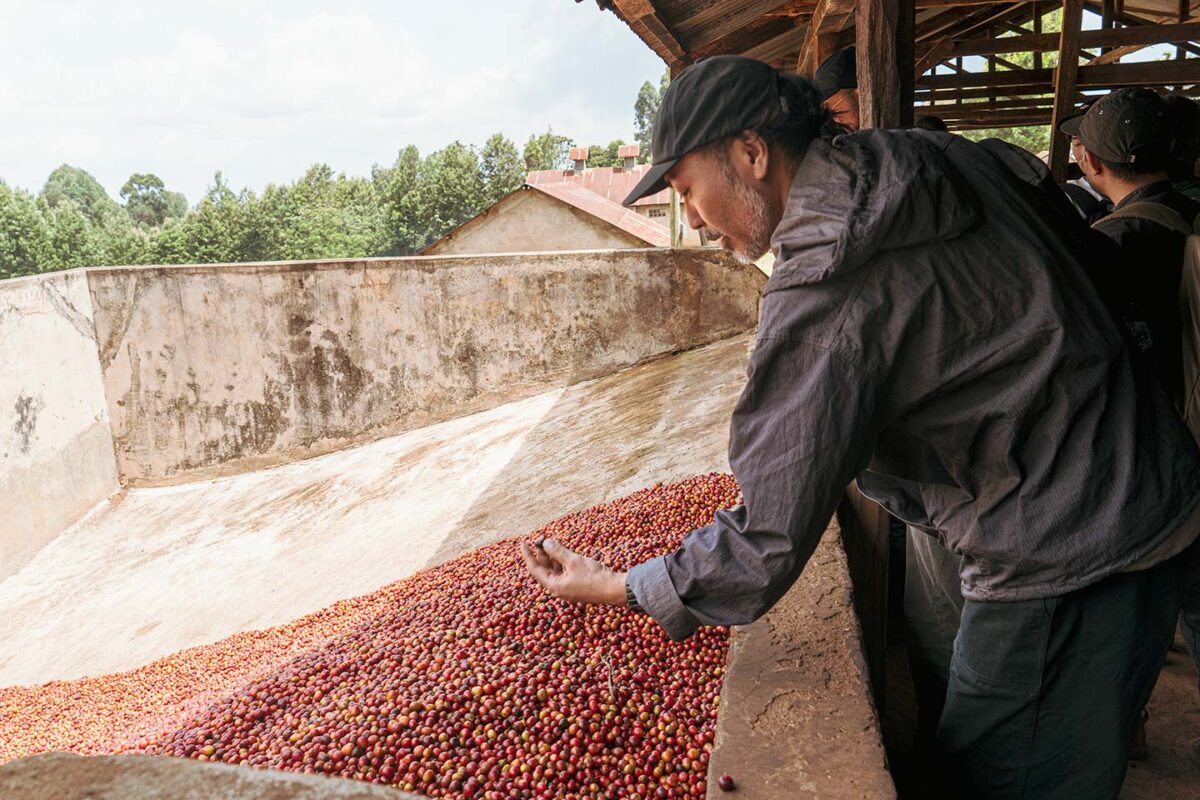
Aoma coffee is a coffee roastery and coffee shop in Osaka, western Japan. Since its founding in 2020, owner Hiroshi Aono has acted as a connector between coffee producers and consumers. As a former textile dyeing artisan, the spirit of craftsmanship is something he values to this day . During his ten-day TYPICA Lab trip to Tanzania and Kenya, he uncovered a fresh perspective.
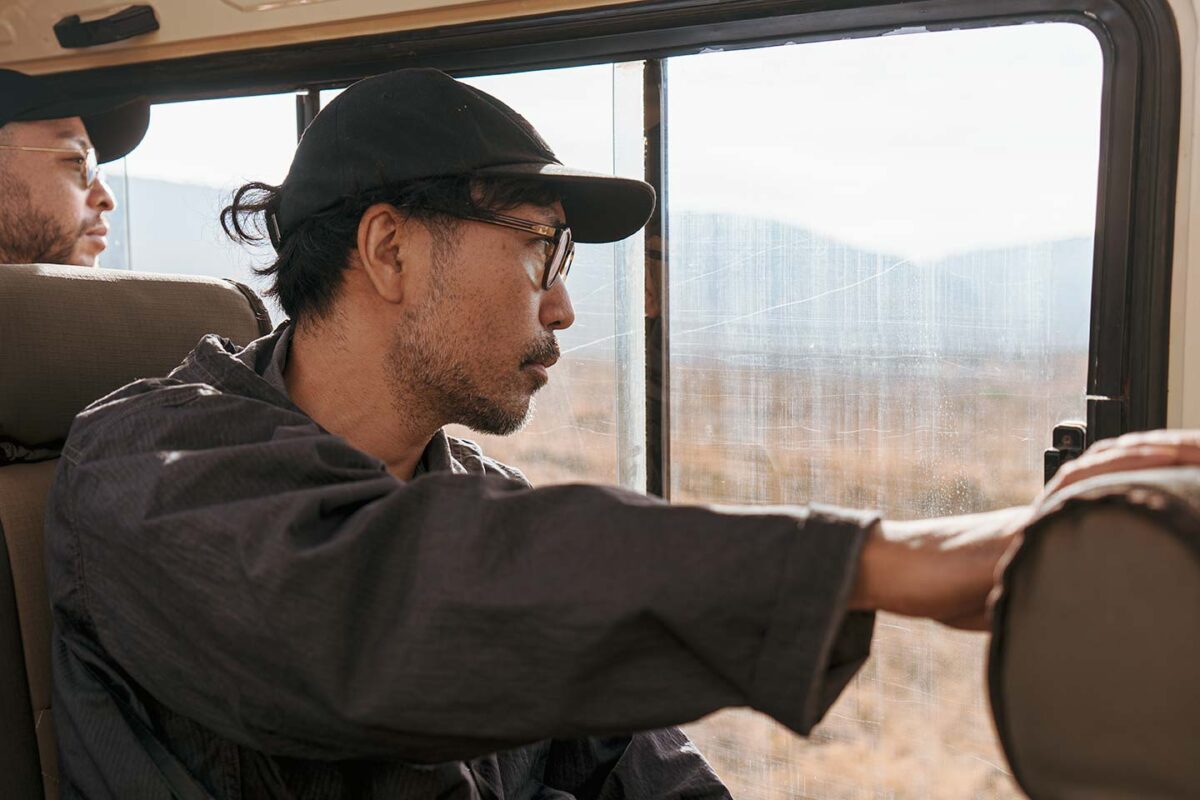
Newfound “Tanzanian flavor”
My focus for this trip was 99% on Kenya before leaving Japan, and Tanzania was just a nice addition. I assume that most other roasters felt the same way.
When I look back on my ten years in the coffee industry, I can hardly remember ever roasting Tanzanian beans or seeing them at importers’ cuppings. When people in the industry think of African coffee, they typically think of the big three origins: Kenya, Ethiopia, and Rwanda.
Over the course of my career in the industry, I’ve developed a pretty good sense of which beans are the most delicious and which varieties are particularly good from certain regions, such as SL from Kenya or Bourbon from Rwanda. I’ve even learned to recognize certain flavor tendencies from different coffee origins. But when it comes to Tanzania, I have to admit, I drew a blank.
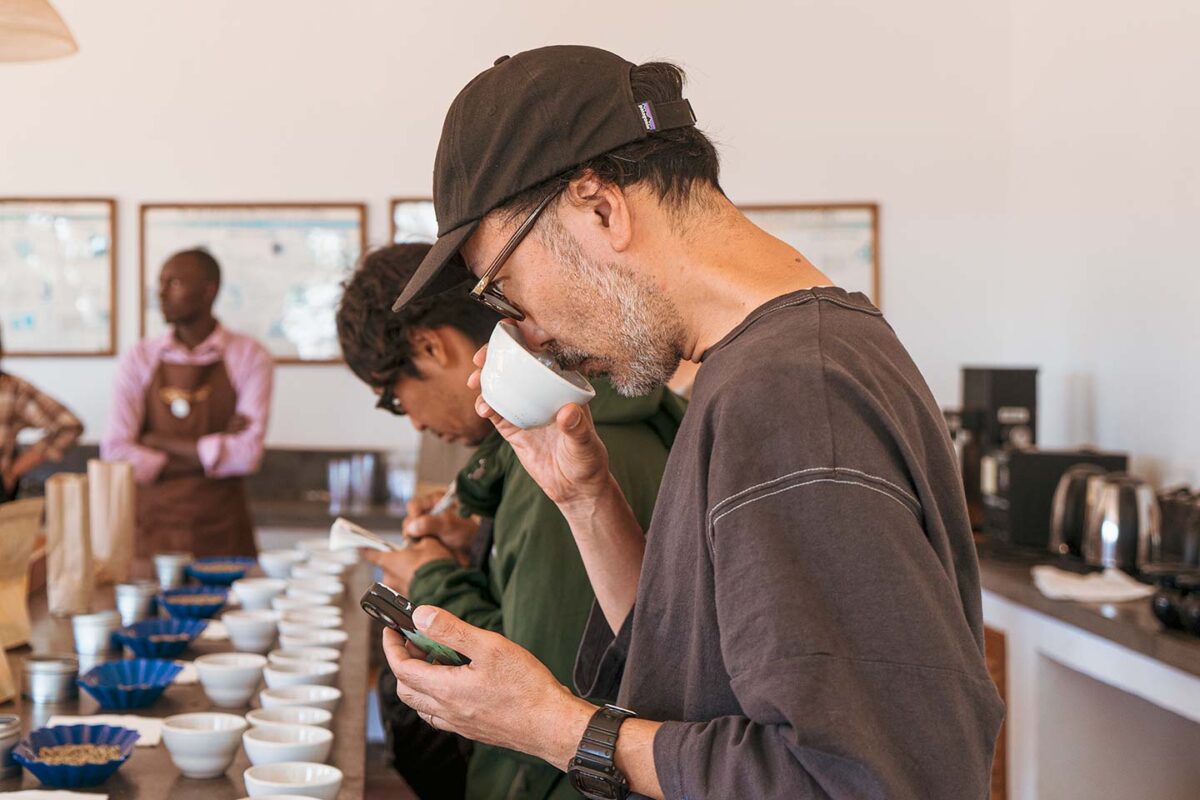
But that changed during my four-day visit. Tanzania holds a special place in my heart now. Maybe it was just the magic of Leon’s farm, but Tanzania went from being an afterthought to stealing 99% of my heart.
During my visit, I had the chance to cup coffees from his farm, and each one was a delight, expressing unique and distinctive character, whether it was Pacamara, SL, or Geisha. It made me realize the great potential Tanzania has. Unlike other African origins that have established flavor profiles, Tanzanian coffee has no such stereotype, so there is room for creativity in defining what “distinctively Tanzanian” means. Although, strictly speaking, Kent is the traditional variety grown in Tanzania and also by Leon, we don’t have to limit ourselves to it.
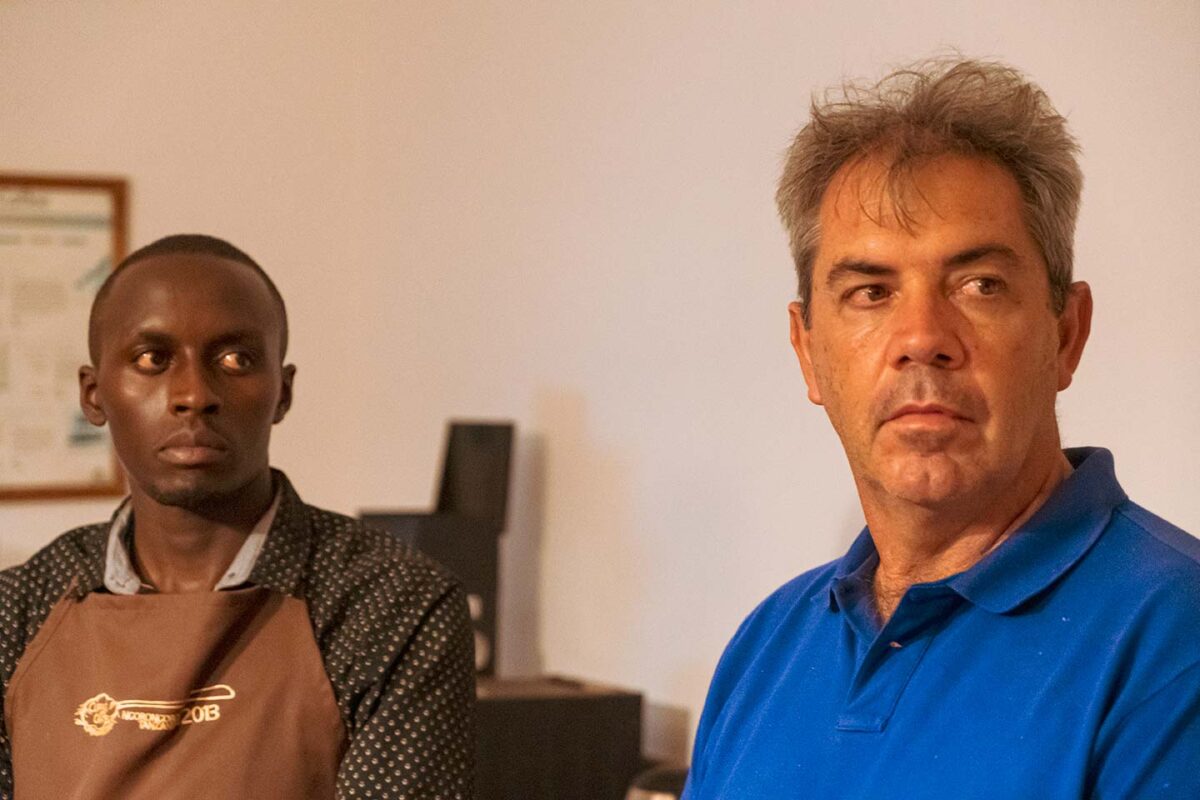
I think the fact that I didn’t expect much from Tanzanian coffee made it all the more amazing. I had no idea it could taste that good. And the country itself, with its pleasant atmosphere and friendly people, made the whole experience a memorable one.
Now I’m eager to continue buying from Leon’s farm while working with him to improve the quality of his coffee. I’d like to visit him next year and every year after that. And If I can’t make it, I’ll send members of my team. Going forward, it’d be also great if I could communicate with his quality control team, too.

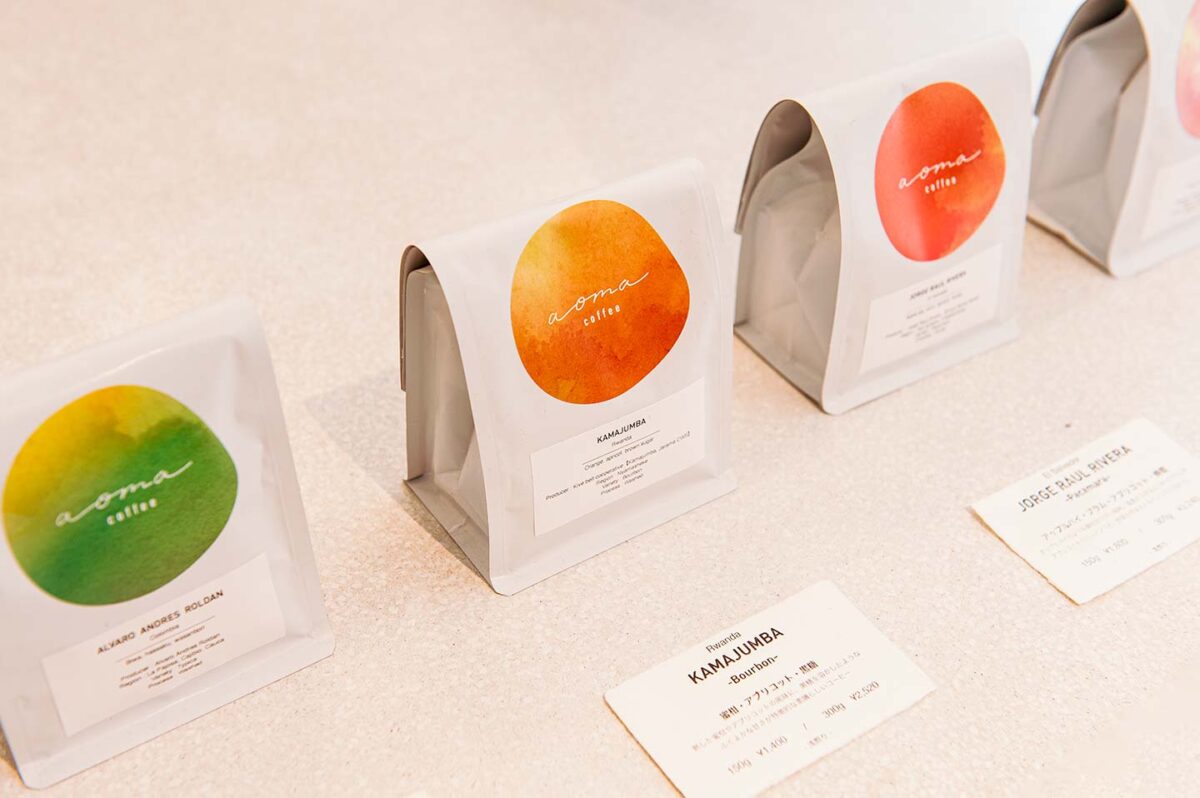
Building fan base
Before joining TYPICA Lab, I’d only been on one origin trip to Colombia. Most of the coffees we use at aoma coffee are from producers and farms we’ve never met or visited before.
Despite that, I think it’s still possible to get a sense of who they are and what their farms are like by roasting and cupping their coffees. Sometimes I even share my imagined impressions of them with my customers, like “this producer must be a meticulous, quiet type.” It’s just my imagination, though.

As a connector, our job is to take the product of producers’ hard work and bring it straight to customers without compromising its distinctive qualities. Whether or not you’ve visited a coffee farm, honing your sensibilities and attuning your senses is crucial to picking up on what makes each coffee so unique.
I’m saying this because the truth is, the vast majority of customers aren’t concerned with who made their coffee in what way. Not all specialty coffee enthusiasts pay a great deal of attention to traceability. Instead, people tend to choose their coffee shops based on factors like how their coffee tastes, what the space looks like, and who works there.
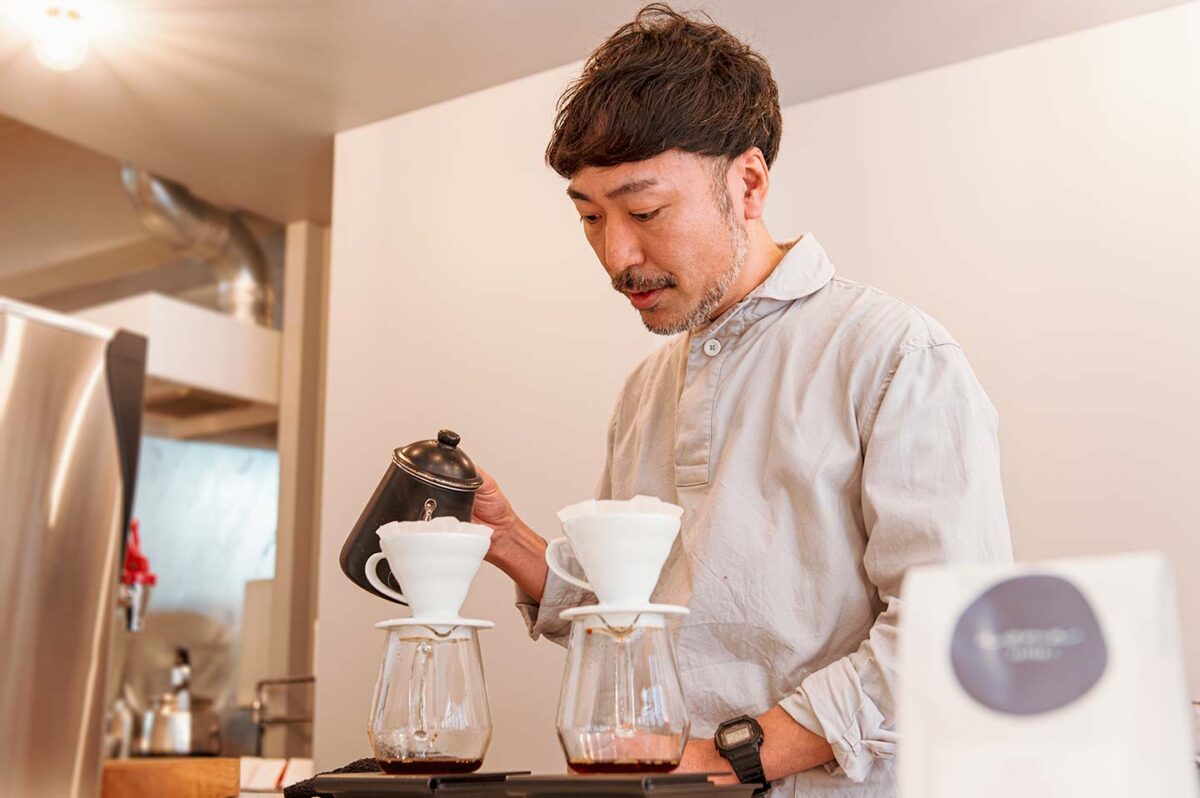
So if you really want to make a difference for producers, it’s essential to first build a strong fan base of your own. Without it, it’s challenging to get people to care about the stories of producers or their coffee farms, no matter how passionately you talk about them. If anything, you could even alienate them. On a financial level, the best coffee shops for coffee producers are those that buy a lot of coffee, contribute to their livelihoods, and help improve their living standards.
After all, that’s the challenge I faced myself. I used to try and educate customers about their coffee so they could realize the story that existed behind that cup. But one day I realized the limitations of that approach.
It became clearer to me that we needed to focus on our growth first, especially after starting my own shop. We can only progress to the next step after our customers become true fans of aoma.
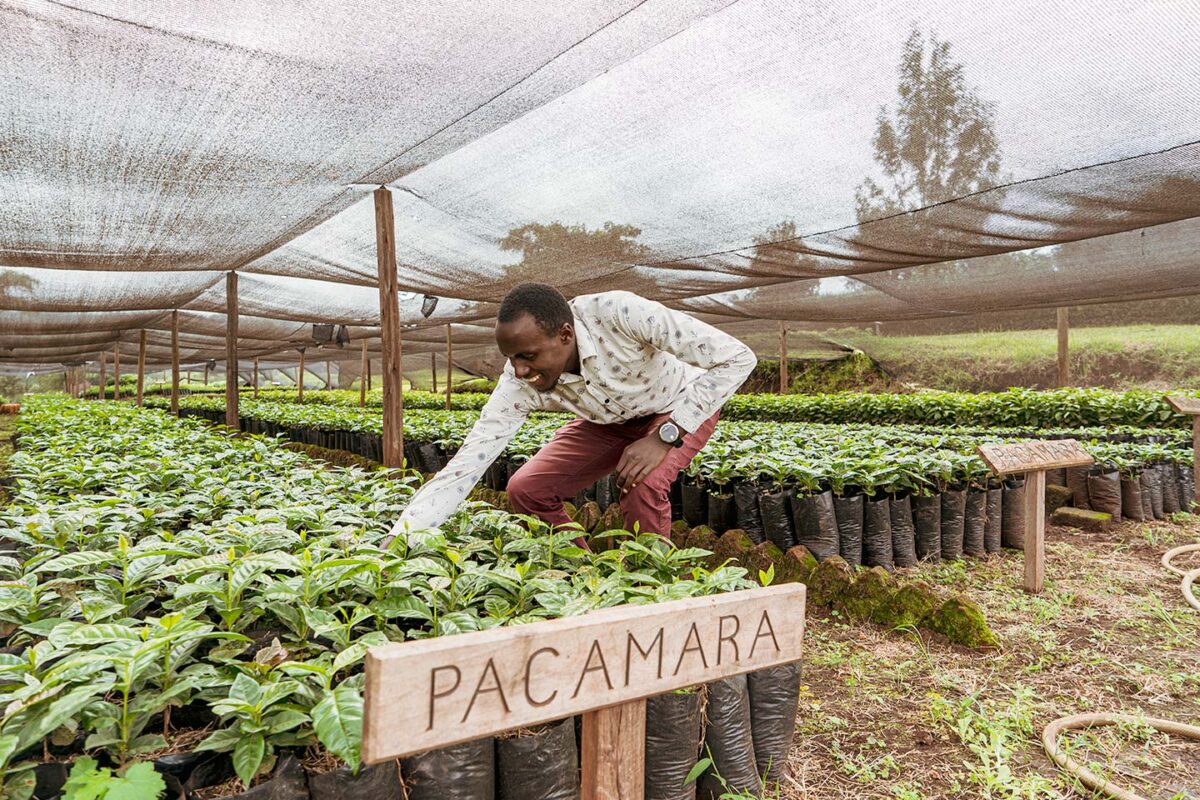
Unearthing hidden gems
At aoma, our lineup consists mainly of coffees that embody the terroir of their origin because drinking such coffees takes you on a sensory journey to the farm where the coffee was grown. Our hope is that through our coffee, our customers can truly taste the distinct qualities that make each origin special.
These days, there is this trend where Cup of Excellence winners are celebrated like a star and receive a lot of attention. While that’s interesting and revolutionary, I don’t feel the need to buy their coffee because they already receive plenty of interest. They will continue to stand out regardless.
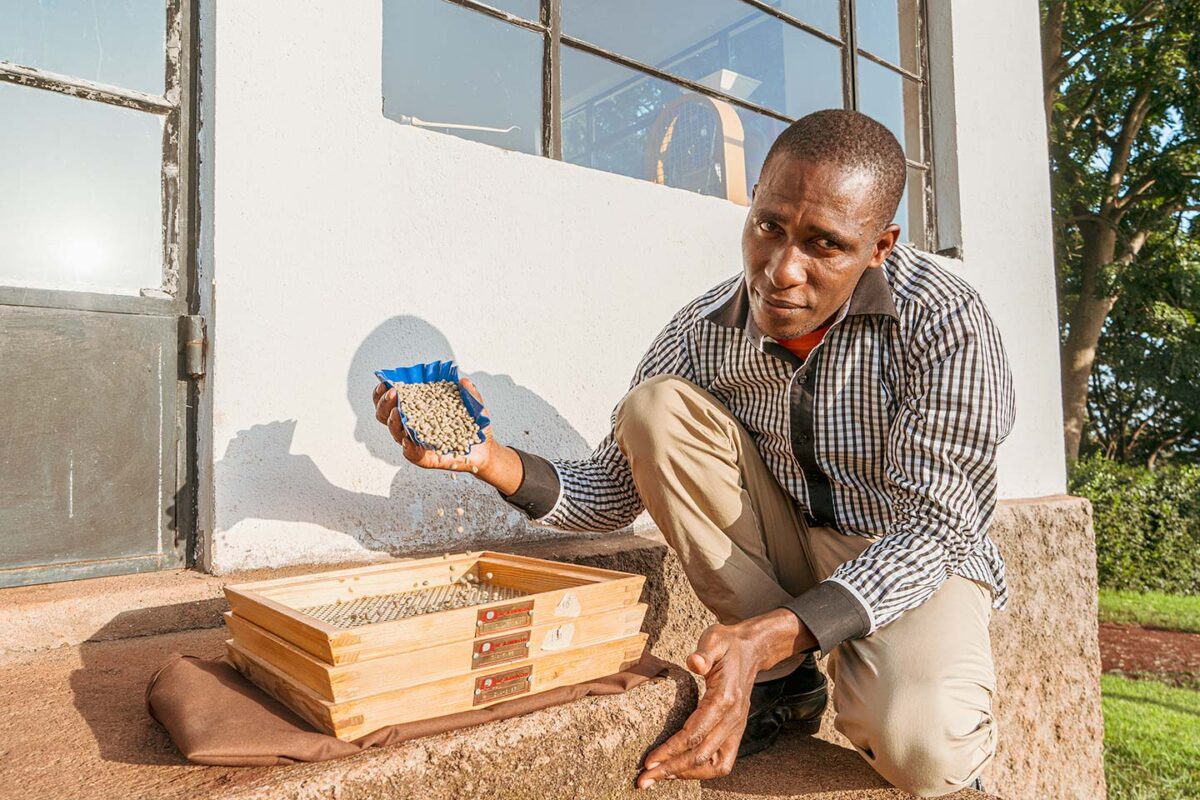
This may be considered old-fashioned, but I believe that unless someone continues to buy a kind of coffee that captures its terroir, coffee will lose its regional distinctiveness. I want to shine a light on small-scale producers rather than large, systematic ones, and I apply the same approach when I buy ceramics.
I left my job as a textile-dyeing craftsman and entered the restaurant industry because I saw automation replacing the traditional methods of craftsmanship. On one of my final days at my former workplace, I remember seeing a notice at the door saying “Take a day off, as we have no work today.” It was a clear signal that my job would soon be taken over by machines. That is precisely why I want to support those who still produce things with their hands even amid the tide of the times.
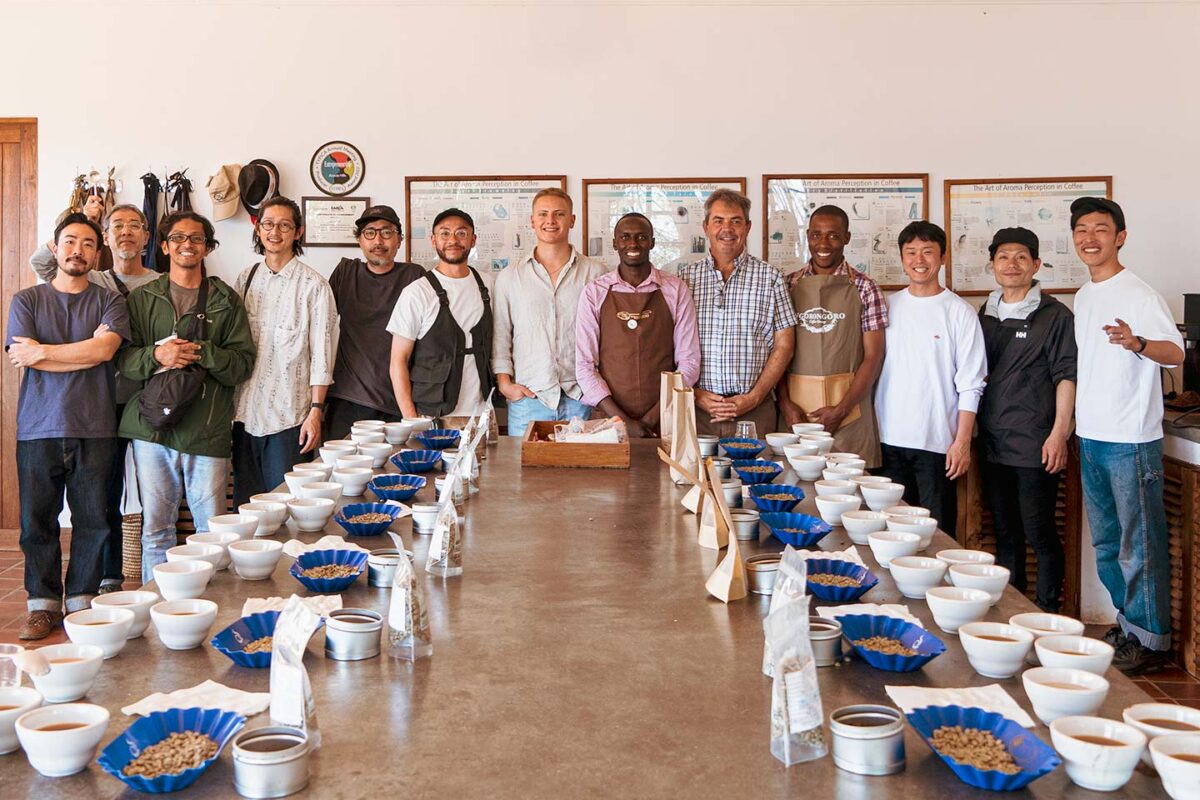
Leon, meanwhile, is the owner of a large estate with over 100 employees. Yet, he came across as humble and down-to-earth and seems to genuinely care about his staff. I was only with him for a few days, so what I saw might just be a glimpse of it. But at least I had a sense that he was someone I could rely on.
Having discovered unexpectedly wonderful coffees in Tanzania, I believe that there are amazing coffees waiting to be found in other origins that I’m not interested in at this moment. Every coffee-producing country has outstanding producers doing a great job, and it’s just that I don’t know them yet. This trip gave me the confidence to believe so.